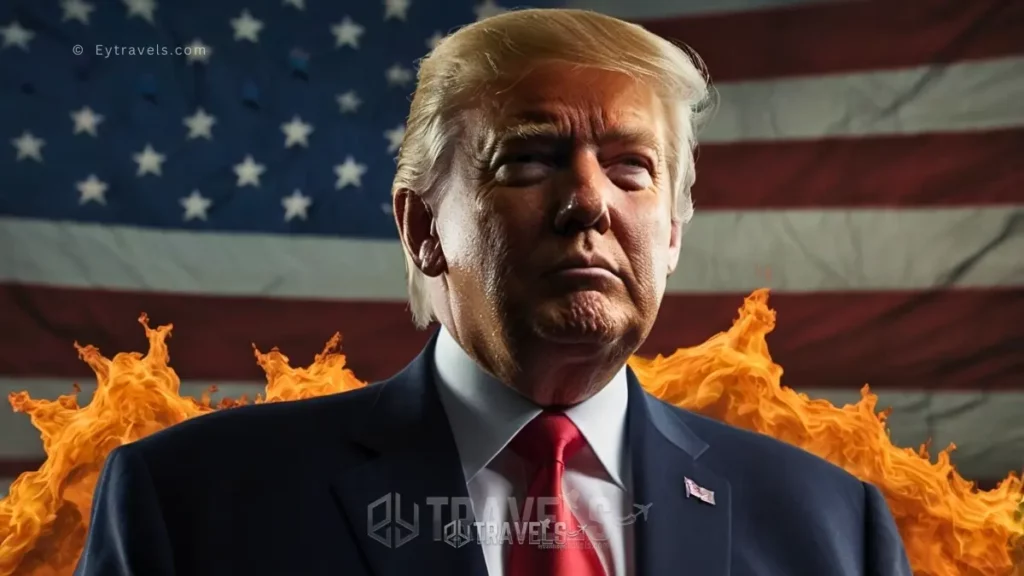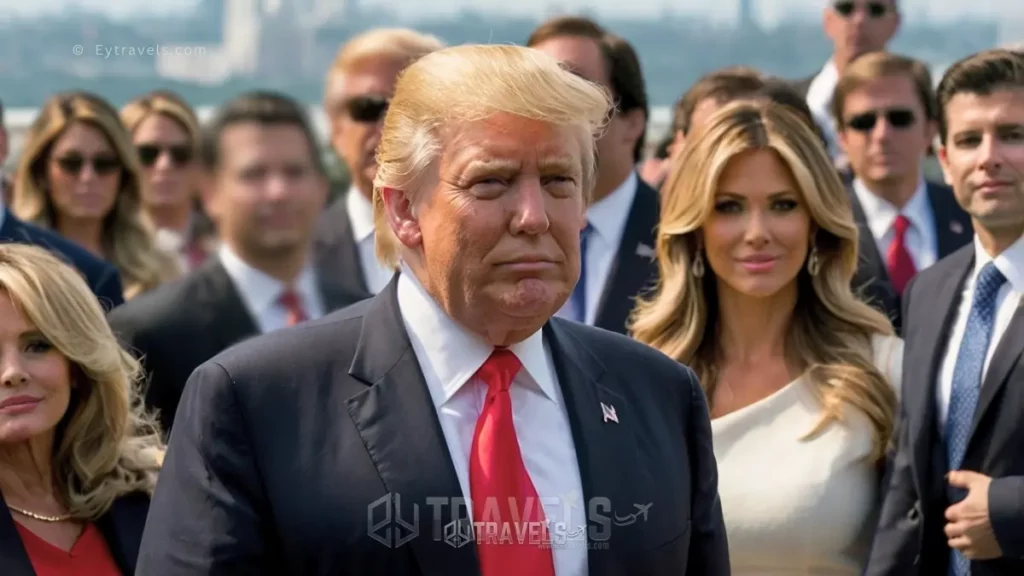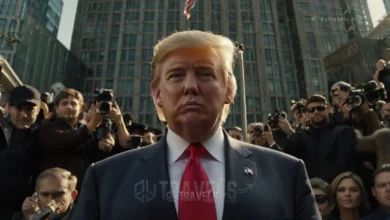The Art of Trump: Analyzing Donald Trump Leadership Style
Decoding Trump: Unraveling the Enigma of his Leadership
In the tumultuous landscape of contemporary politics, few figures have commanded as much attention, adulation, and controversy as former President Donald J. Trump. Whether revered as a stalwart champion of American interests or reviled as a divisive force unsettling the status quo, one indisputable fact remains- Donald Trump leadership style is undeniably polarizing. Unraveling the complexities woven into the fabric of his governance requires a keen eye for nuance and a willingness to delve deep beneath the surface personas he presents to the world.
Table Of Contents
- The Art of Trump: Analyzing Donald Trump Leadership Style
- Donald Trump Leadership Qualities
- Trump Communication Strategies
- Decision-Making Process Of Donald Trump
- Controversies and Contradictions: Unpacking the Trump Administration’s Turbulent Legacy
- Global Influence
- Legacy Building: The Trump Era’s Trail of Influence
- Deciphering the Enigma
The Art of Trump: Analyzing Donald Trump Leadership Style
Examining Trump's leadership unfolds like peeling back layers of an enigmatic puzzle—one that beckons us to decode the fusion of business acumen, showmanship, and unyielding determination that defines his approach. His ability to captivate specific segments of society with unwavering charisma while simultaneously alienating others speaks to his knack for harnessing influence in both unique and divisive ways.
As we embark on a journey to dissect his leadership playbook—a tapestry interwoven with bravado, contradiction, and steadfast conviction—the contours of Trump's enigma come sharply into focus, inviting us to ponder not just what he says but how it reverberates through the corridors of power and public discourse alike.

Step boldly into this exploration of The Art of Trump: Analyzing his Leadership StyleDecoding Trump: Unraveling the Enigma of his Leadership as we venture beyond headlines and sensationalism to scrutinize the underlying principles at play. Prepare to confront uncomfortable truths, challenge preconceived notions, and unearth fresh insights that illuminate both the allure and ambiguity of Trump's stewardship over one of the world's most powerful nations. Join us on this quest for understanding—not merely to critique or commend but to navigate the labyrinthine paths carved by a leader whose impact continues to shape our collective consciousness long after departing from center stage.
Donald Trump Leadership Qualities
In the convoluted landscape of American politics, Donald Trump's leadership style emerges as a dichotomy—simultaneously captivating and contentious. His approach is a fusion of business acumen honed over decades in the corporate world and a flair for showmanship that dominated his pre-political career. Trump's ability to communicate directly with his base, often bypassing traditional filters, has created an unwavering connection with a segment of society that felt overlooked by the political establishment. This charisma was exemplified during his rallies where supporters found solace in his unfiltered speech and promises of change.
While Trump's leadership qualities have garnered him devoted followers, critiques linger regarding inclusivity and collaboration. Some argue that his leadership style is polarizing, exacerbating societal divisions rather than fostering unity. Critics point to instances where he employed divisive language or failed to engage constructively across political divides. The lack of consensus-building strategies has led to legislative gridlock on critical issues, hindering the progress touted during his campaign.
Despite these criticisms, Trump's unconventional leadership approach cannot be ignored. His ability to tap into the grievances of specific demographics resonates deeply within certain segments of American society. Understanding the complexities of his appeal requires delving into sectors that feel neglected or disenfranchised by mainstream politics. Unraveling this enigma offers insights not only into Trump as a leader but also into the intricate tapestry of values and frustrations woven throughout modern America.
Trump Communication Strategies
Donald Trump's leadership style is intrinsically linked to his unparalleled communication strategies. His direct and unfiltered approach to speaking resonates deeply with his base, creating a sense of authenticity that forges an emotional connection unlike what many traditional politicians can achieve. Through raucous rallies and blunt tweets, Trump harnessed the power of spectacle, turning political events into mega productions where he was both the star and the director. This ability to command attention through sheer force of personality transformed the landscape of political communication in the 21st century.
A defining feature of Trump's communication arsenal was his robust social media presence. With Twitter as his weapon of choice, he bypassed traditional media gatekeepers, speaking directly to millions in real-time bursts of information, often shaping public opinion one tweet at a time. His use of social media not only solidified his image as a disruptor but also raised questions about responsible governance in an age dominated by digital platforms. While some lauded his masterful use of social media to connect with supporters, others criticized the lack of filter on his impulsive late-night missives, which led to diplomatic rows and domestic turmoil.
However, criticism toward Trump's rhetoric was widespread, with detractors pointing to its divisive nature and impact on public discourse. The incendiary language used by Trump sometimes bordered on inflammatory, heightening tensions within an already polarized society. His provocative comments often sparked heated debates on issues ranging from immigration to race relations, leaving a lingering legacy of discord that shaped public discourse long after his presidency ended. As analysts continue to dissect the nuances of Trump's communication strategies, it remains clear that his words wielded immense power – for better or for worse – in shaping the national dialogue during his tumultuous tenure in office.
Decision-Making Process Of Donald Trump
Donald Trump's approach to decision-making has been a subject of both fascination and criticism. Known for his reliance on gut instincts, Trump often made decisions based on intuition rather than in-depth analysis. Whether it was withdrawing from international agreements like the Paris Climate Accord or engaging in high-stakes negotiations with foreign leaders, Trump's impulsive nature shaped his presidency's policy directions. This unorthodox decision-making process set Trump apart from conventional leaders, sparking debates about the risks and rewards of such an approach.
The dichotomy between impulsive reactions and calculated moves defined many pivotal moments during Trump's tenure. On one hand, his swift actions on trade policies aimed to protect American interests resonated with his base. However, critics pointed to instances like sudden tariffs announcements that sent shockwaves through global markets as potential consequences of erratic decision-making. The balancing act of impulsivity versus strategy created an unpredictable leadership style that yielded mixed outcomes, leaving lasting impacts on both domestic and international fronts.
Assessing the effectiveness of Trump's decision-making process during crises shed light on his adaptability under pressure. From handling natural disasters to navigating diplomatic tensions, Trump showcased a mix of boldness and unpredictability in his crisis management. For instance, his response to the COVID-19 pandemic illustrated the challenges of relying heavily on instincts amid rapidly evolving situations. Evaluating the aftermath of decisive moments under Trump's leadership provides valuable insights into understanding how leaders' decision-making styles can shape outcomes in times of uncertainty.
Controversies and Contradictions: Unpacking the Trump Administration’s Turbulent Legacy
In the landscape of American politics, controversies seem to orbit around Donald Trump akin to a constant storm. From his fervent push for a border wall between the United States and Mexico to his provocative foreign policy decisions, Trump's leadership has been as divisive as it is headline-grabbing. The border wall issue epitomized this divisiveness, with supporters lauding it as a solution for national security while critics slammed it as an unnecessary expenditure that fueled animosity with Mexico.
This controversy not only exposed deep-seated societal divisions but also represented conflicting visions of America's identity under Trump's administration.

Digging deeper reveals a tapestry of contradictions woven throughout Trump’s political career. The dissonance between his actions and professed principles has left both supporters and critics scratching their heads. The self-proclaimed champion of blue-collar workers implemented tax cuts favoring the wealthy, prompting accusations of favoring elites over working-class Americans. These inconsistencies have sown confusion among constituents, complicating efforts to decipher where true intentions lie beneath the bluster.
Furthermore, personal scandals have stained the fabric of Trump's presidency, tainting public perception of his leadership credibility. Whether navigating allegations of misconduct or facing backlash over controversial statements, his tenure has been marred by scandals that eroded trust in his ability to lead effectively. These scandals often overshadowed policy discussions, highlighting the volatile intersection between personal conduct and public office – a nexus that proved particularly tumultuous during the Trump era.
As controversies swirled and contradictions mounted, Trump's unique brand of leadership captured attention on the global stage — a blend of bombast and brinksmanship that meshed unpredictably with statecraft. In assessing his leadership legacy, these controversies and contradictions stand as indelible markers shaping perceptions of an administration defined by turbulence and turmoil.
Global Influence
Assessing Donald Trump's impact on global relations reveals a dynamic landscape reshaped by his “America First” doctrine. The unconventional approach to diplomacy favored by President Trump prioritized national interests, often at the expense of traditional alliances and agreements. One defining feature was his negotiation strategy, advocating for renegotiating trade deals to be more favorable for the United States. This stance led to both praise and criticism, with supporters lauding his tough stance on foreign policy while critics raised concerns about destabilizing established international relationships.
Under the banner of America First, Trump made substantial shifts in key diplomatic partnerships, particularly with NATO allies and countries like China. His proactive use of tariffs as a bargaining tool ignited trade wars that sent ripples across global markets and triggered retaliatory measures from major economies. While some argue this aggressive stance strengthened American economic standing, others warn of the long-term repercussions on international cooperation and stability.
The enduring legacy of Trump's foreign policy decisions extends beyond his term in office, impacting how future administrations engage with the world stage. By questioning the status quo and challenging traditional norms in diplomacy, Trump left an indelible mark on U.S. foreign relations. The lasting effect of his tenure remains a subject of intense debate among policymakers and experts alike as they grapple with the implications—both intended and unintended—of his governance on America's position in the global geopolitical arena.
Legacy Building: The Trump Era’s Trail of Influence
As the dust settles on the tumultuous presidency of Donald J. Trump, his loyalists are engaged in a delicate dance of shaping his legacy against a backdrop of controversies and adversities. Efforts to portray Trump as a transformative figure in American politics, championing anti-establishment values and prioritizing economic prosperity, showcase the narrative being weaved by his staunch supporters. Despite facing backlash for divisive rhetoric and confrontational policies, these loyalists emphasize moments like tax cuts that spurred economic growth and appointments of conservative judges that reshaped the judiciary.
The lasting impact of Trump's presidency extends beyond policy wins to reshaping conservative movements and realigning the political landscape post-administration. His unapologetic stance resonated with a significant segment of Americans disillusioned with traditional politics, leading to a surge in populist sentiments within the Republican base. This shift has not only influenced the GOP's platform but also paved the way for new faces embodying Trump's disruptive style to emerge within conservative circles, indicating a lasting imprint on right-wing politics.
Predictions about how history will judge Trump’s tenure remain fiercely debated. While some view him as a disruptor who challenged conventional norms and rallied disenfranchised voices, others criticize his administration as chaotic and damaging to democratic institutions. The jury is still out on whether accomplishments like criminal justice reform or Middle East peace agreements will overshadow controversies such as impeachment proceedings and handling of national crises. How future generations perceive the enigmatic leadership of Donald Trump will likely hinge on striking an intricate balance between polarized perspectives rooted in his complex legacy-building efforts.
Deciphering the Enigma
In understanding the leadership style of Donald Trump, one is faced with a complex tapestry of charisma, controversy, and contradiction. From his unconventional approach merging business flair with political theater to his blunt communication strategies that resonate deeply within certain segments of society, decoding the enigma of Trump unveils a leader who defies traditional molds. Critiqued for lacking inclusivity and collaboration yet hailed for his unwavering determination, Trump's decision-making process often embodies a blend of impulsive gut instincts and calculated maneuvers that have navigated both turbulent waters and tumultuous applause. However, his legacy remains clouded by personal scandals, global ramifications, and polarized perceptions.
As history continues to unravel the enigma of Trump’s leadership legacy, one thing remains clear: the impact he has had on shaping not just American politics but international relations as well. The echoes of “America First” policies reverberate globally, leaving lasting impressions on alliances and trade dynamics. How future generations perceive his term in office will pivot on a fulcrum balancing achievements against controversies, where supporters laud his disruptiveness while critics decry it as chaos. Whether regarded as a maverick or maligned figurehead is subjective; what endures is an enigma that history will continue to decipher long after the final curtain call of the Trump era.






